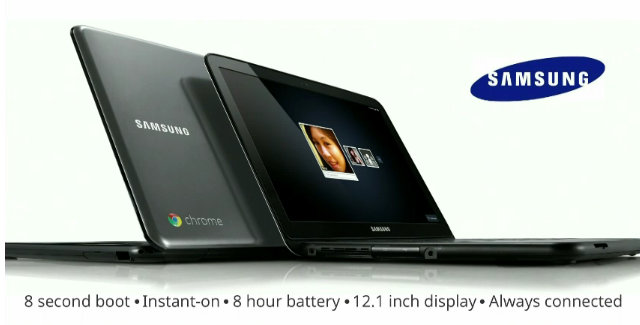Five Reasons why Google's Linux Chromebook is a Windows killer


Can Google do what the Mac was never able to do? What the various desktop Linuxes, even the most popular ones like Ubuntu have never even come close to pulling off? I think it can. Here's why.
1. Attractive business packaging and pricing
ZDNet Editor-in-Chief, Larry DIgnan, hit the nail on the head when he entitled his Chromebook overview: Google Chromebooks: Aimed directly at Microsoft's PC upgrade cycle for $28 a month. Exactly so. For $28 a month you get a constantly updated operating system and, this is the killer part, Google will also automatically, with no extra charge update your Chromebook or ChromePC every three years.
Would you spend $28 a month for a PC that will never go out of date? I think I would.
What's more important, I think a lot of businesses would as well. Indeed, many already are. Neil Levine, formerly Canonical's VP of corporate services and founder of the new cloud analytics company Soba Labs, tells me that "Many Fortune 500 companies are already trying rent-a-laptop scenarios. It's cheaper to throw away and replace than fix for many function." With the Google Chrome OS model though you don't even have to throw them away and if something goes wrong, Google will replace the dead unit.
2. Ease of use
Linux has a reputation for being hard to use. It's non-deserved. We're long, long way from the days when you needed to be a shell wizard to use Linux. That said, desktop Linux, whether you use KDE or GNOME, requires you to learn a new way of doing things no matter whether you come from Windows or Mac OS X. Even the new, easier-to-use Ubuntu Unity interface is quite a change from any other desktop.
With Chrome OS, though, well let me ask you a question: Can you use a Web browser? If the answer is yes-and if it's not how are you reading this story!?--you can use Chrome OS. The interface is the Chrome Web browser and that's it. There's no need to learn anything new. If you know how to use a computer at all, you can use a Chromebook.
3. Lots of Applications
People have always been cranky about the perceived lack of applications for Linux. I think this is nonsense myself since there are lots of excellent open-source applications such as LibreOffice for office work, Evolution for Outlook users, Pidgin for instant-messaging and on and on. What people usually mean when they say there are no apps. for Linux is that they can't run their favorite Windows game or business application on Linux.
Again, that's not an issue on Chrome OS. Google has partnered with Citrix and VMWare to provide Windows business apps for Chromebooks. Both partners have been delivering Windows applications on virtual platforms and in thin-clients for years, or decades in Citrix's case. Mind you I wouldn't trying running Adobe Photoshop on a Chromebook unless I had an incredibly fast Internet connection, but anything else shouldn't be a problem.
Besides, as Google is happy to point out, many of you are already running applications on the cloud already such as Google Docs or Salesforce. No, applications are not a problem for the Chromebooks.
Page 2: [Security & A great Brand Name] »
Security & A great Brand Name
4. Security
Yes, malware can strike anywhere, even on Macs. That said, for every attack that works on a Mac, a Linux PC, or a Chrome browser, there are tens-of-thousands that work on Windows. That's no surprise. Windows started out insecure by design. Linux and the Chrome browser were both designed to operate in a hostile networked world rather than on a standalone PC.
5. Google Brand Recognition
Linux users know about Red Hat, openSUSE, and Ubuntu, ask anyone else what any of those three names are and you'll get a blank one. Everyone on the planet though knows who Google is. While Google has made its share of mistakes, Google is still a trusted brand. According to Millward Brown's recent brand survey, Google is the second most valuable brand in the world.
A company that would shy away from using "Linux" desktops from Canonical, Ubuntu's parent company, or anyone else, might very well buy one from Google and its hardware partners, Acer and Samsung. From where the customer sits, they're not buying something strange or new from an unknown party, they're buying a PC that's already using a system they know from a company that they already trust.
Put it all together, and I think Microsoft's Steve Ballmer did far more than blow a few billion on Skype, I think he wasted his time on a side-issue while Google came straight at Microsoft's strongest stranglehold on the industry: the business desktop.
Should Microsoft worry? Yeah, I think so. They've got Apple making in-roads on the business desktop front with tablets and smartphones, may other companies, like HP, are also going after the business desktop with tablets, and now Google has finally thrown down the gauntlet on the business desktop.
Dare I say it? I think for the first time in decades, Microsoft is facing real trouble on the desktop. Seem unlikely? Remember when everyone used Internet Explorer and then along came Firefox? I see the desktop market at a similar tipping point.
Related Stories:
Google Chromebooks: Aimed directly at Microsoft's PC upgrade cycle for $28 a month
Over time, Chromebooks can take consumer love (and money) away from Windows, iPad